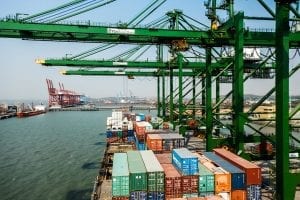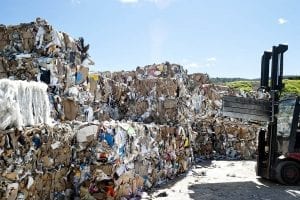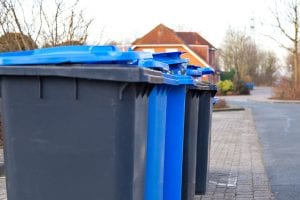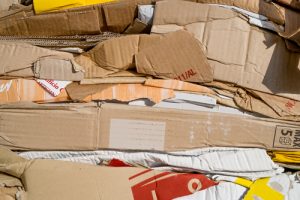 Another major importer of recyclables in Asia is drafting policy to reshape its relationship to materials recovery. But this time, the move could actually be a boon to exporters.
Another major importer of recyclables in Asia is drafting policy to reshape its relationship to materials recovery. But this time, the move could actually be a boon to exporters.

 Another major importer of recyclables in Asia is drafting policy to reshape its relationship to materials recovery. But this time, the move could actually be a boon to exporters.
Another major importer of recyclables in Asia is drafting policy to reshape its relationship to materials recovery. But this time, the move could actually be a boon to exporters.

Although Chinese scrap plastic import permits remain scarce, the government has ramped up the volume of recycled paper it is allowing into the country to levels not seen since March.
 A reclaimer and end user will open a $35 million facility in North Carolina, taking in HDPE and mixed-plastic bales for its internal use and for sale as regrind on the market.
A reclaimer and end user will open a $35 million facility in North Carolina, taking in HDPE and mixed-plastic bales for its internal use and for sale as regrind on the market.
 A recent survey of materials recovery facilities in the Northeast asked them about the glass they’re generating. The answers paint a picture of a stream full of contamination and glass fines.
A recent survey of materials recovery facilities in the Northeast asked them about the glass they’re generating. The answers paint a picture of a stream full of contamination and glass fines.
 Scrap plastic shipments to Malaysia will be subject to new restrictions in the coming weeks, as the country follows through on its vow to get a handle on skyrocketing imports.
Scrap plastic shipments to Malaysia will be subject to new restrictions in the coming weeks, as the country follows through on its vow to get a handle on skyrocketing imports.
 Toronto-based GFL Environmental has entered a merger agreement with Raleigh, N.C.-headquartered Waste Industries.
Toronto-based GFL Environmental has entered a merger agreement with Raleigh, N.C.-headquartered Waste Industries.
 A major Chinese paper company will add recycled pulp production lines at two U.S. virgin fiber mills it purchased earlier this year, and both will consume mixed paper and OCC.
A major Chinese paper company will add recycled pulp production lines at two U.S. virgin fiber mills it purchased earlier this year, and both will consume mixed paper and OCC.
 A year after an online scrap plastics trading marketplace launched, an executive at the startup offered insight into where material is moving in the aftermath of China’s ban.
A year after an online scrap plastics trading marketplace launched, an executive at the startup offered insight into where material is moving in the aftermath of China’s ban.
